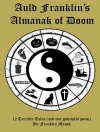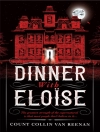In 'A Book of Ghosts, ’ Sabine Baring-Gould artfully weaves together an anthology of supernatural tales that reflects the Victorian fascination with the macabre. This collection not only explores ghostly encounters and hauntings but also serves as a critique of contemporary beliefs surrounding spirituality and the unknown during a period marked by rapid scientific progress. Baring-Gould’s distinctive literary style combines folkloric authenticity with vivid descriptiveness, enveloping readers in eerie atmospheres rich with historical context and cultural significance. Baring-Gould was an eminent scholar, folklorist, and clergyman whose extensive travels across England allowed him to gather local legends and ghost stories, intrinsically linking him to the varied cultural narratives present within his writing. His profound interest in folklore and the occult, coupled with his background in theology, informs the complex moral and philosophical undertones found in these spectral tales, making his insights particularly resonant within the genre of ghost literature. For readers intrigued by the intersections of history, myth, and the supernatural, 'A Book of Ghosts’ emerges as a compelling exploration of the ethereal world. Baring-Gould’s authoritative voice lends credibility to these haunting accounts, inviting readers to ponder the unresolved mysteries of life and death, and making this book a significant contribution to both literary and cultural studies.
O autorze
Sabine Baring-Gould (1834–1924) was a prolific English author, antiquarian, and Anglican priest, renowned for his eclectic scholarly pursuits and literary contributions. Born on January 28, 1834, into a landed family in Devon, England, Baring-Gould displayed a keen interest in history, folklore, and theology from a young age. Educated at Clare College, Cambridge, he achieved a degree in classics before pursuing a career in the church, eventually settling at Lewtrenchard in Devon, where he would remain for the bulk of his life. His clerical position afforded him the time and resources to delve into various scholarly activities, resulting in a vast body of work that spanned multiple genres and subjects (Baring-Gould, S. 'A Book of Ghosts, ’ 1904). His literary output included hymnody, most notably the composition of the hymn 'Onward, Christian Soldiers, ’ historical texts, and collections of folklore, reflecting his deep fascination with myth and the supernatural. As an author, Baring-Gould was well-regarded for his captivating storytelling and extensive knowledge, which is exemplified in his compilation 'A Book of Ghosts.’ This collection showcases his unique ability to blend historical insight with eerie and suspenseful narratives, securing his place as a significant figure in the realm of supernatural and gothic literature. His contribution to the field continues to be appreciated by academics, folklorists, and readers who seek to explore the rich tapestry of English folklore and ghost stories.












